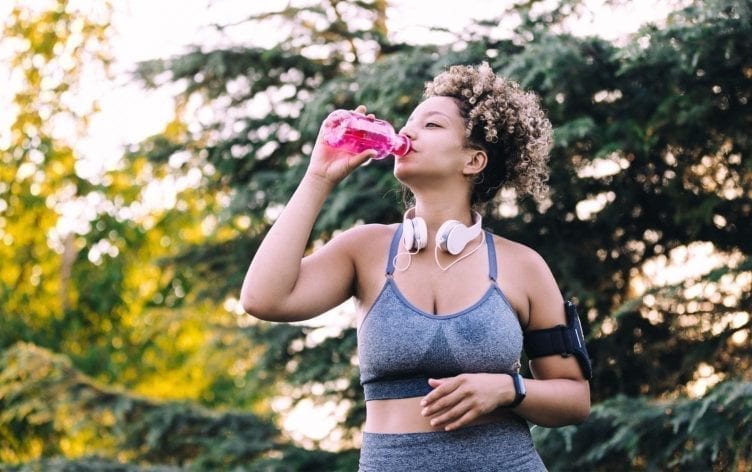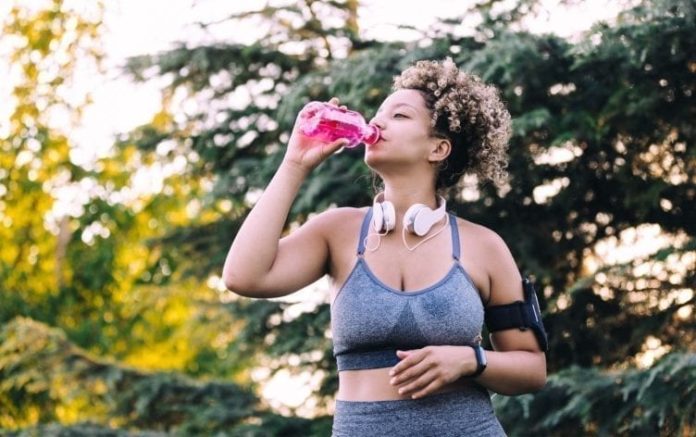
Shedding pounds takes dedication, patience and persistence — especially if you’re going about it in a safe and sustainable way. That’s why losing even 1 pound is a success. However, losing 5–10% of your total body weight is likely to bring big health benefits, such as lower blood cholesterol, blood sugar and an improvement in overall blood pressure levels.
Depending on how much weight you lose, there could be one not-so-pleasant result: loose skin. When a person loses a significant amount of weight, they can end up with loose skin either in their stomach or in other parts of their body, like their arms, chest or thighs. This is super common, says Dr. Caroline A. Andrew, a weight-management specialist at the Hospital for Special Surgery.
WHY DOES LOOSE SKIN HAPPEN?
“There isn’t a definite number of pounds that someone has to lose to develop loose skin,” says Andrew. “However, there are some factors that may make someone more prone to developing this. Patients that undergo bariatric surgery often see loose skin, especially when we’re talking weight-loss numbers of 100 pounds or more.” When you lose a large amount of weight quickly, you’re more likely to have loose skin, since there’s not enough time for the skin to gradually contract.
Other factors Andrew highlights that can contribute to a person’s likelihood to have loose skin after weight loss include genetics, age (the older you are the higher the risk of loose skin since age naturally affects skin elasticity), history of sun exposure (the sun damages collagen, a protein that helps keep skin firm) and whether or not someone is a smoker (smoking similarly triggers the breakdown of collagen).
WHAT CAN YOU DO ABOUT LOOSE SKIN?
For many, the excess skin poses no health risk, notes Andrew. “Once you already have excess skin, there isn’t really one magic supplement you can take to change the appearance,” says Andrew, but there are a few small things you can do that might help.
1
LIFT WEIGHTS
Resistance training has a slew of perks, including helping build total-body functional strength, increasing bone density and improving mental health — reducing feelings associated with anxiety, depression and chronic fatigue. When it comes to its impact on loose skin, Andrew says adding it into your regular routine helps improve lean muscle mass, which ultimately makes the skin look more firm.
“It’s important to start resistance training early on during your weight-loss journey,” she adds. “Of course, it depends on how much loose skin you have, but resistance training can help the skin look more taut around the muscle. It’s not necessarily changing the skin structure itself, but rather how it looks.”
Andrew recommends individuals consult with a personal trainer or other expert who can help you create a plan that best fits your individual body and goals. That said, working out with loose skin is completely safe. Research published in the journal Obesity Surgery shows that while loose skin may not be aesthetically pleasing, it shouldn’t prevent individuals from partaking in physical activity. If you’re worried about loose skin when working out, you might consider wearing compression gear.
READ MORE > 4-WEEK NO GYM, NO PROBLEM WORKOUT GUIDE
2
PRIORITIZE HYDRATION
Research shows properly hydrating can help stave off dry skin and positively impact your skin’s overall appearance — helping it stay firm and adding a nice glow. Even a 2% decrease in body weight due to fluid losses can impact mental and physical performance. The Institute of Medicine recommends 3.7 liters a day for men and 2.7 liters a day for women, but you may need more if you’re breastfeeding, physically active or in a warmer climate. Start by tracking your fluid intake on an app like MyFitnessPal (remember, food contains water, too) then implement small hacks to sip more throughout the day like keeping your favorite water bottle in sight or starting a meal with a broth-based soup.
3
TALK TO A DOCTOR ABOUT OPTIONS
It’s important to note there are more invasive options like surgery for someone who may experience extreme discomfort (either based on aesthetics or physical issues, like rash or infection). If you’re in this boat, Andrew suggests consulting with a doctor or plastic surgeon to talk about removing loose skin for good. “At the end of the day, this is your body,” she says. “For someone who has lost a lot of weight and is concerned about aesthetics, ultimately this type of decision is yours to make.”
Originally published October 2020
Unlock an experience that’s like having a dietitian, trainer and coach — right at your fingertips. Go Premium for expert guidance and exclusive tools that will help you reach your personal health goals.










